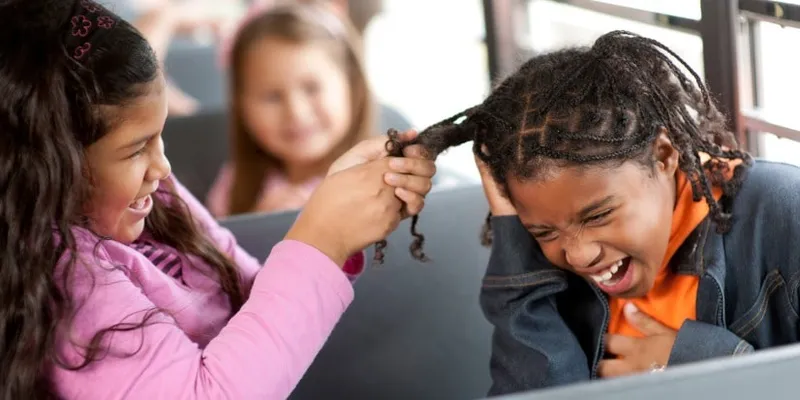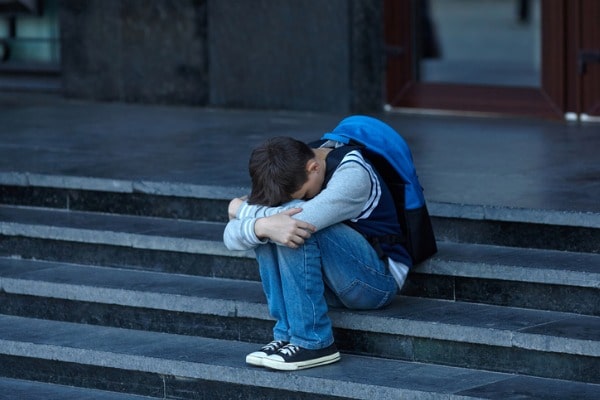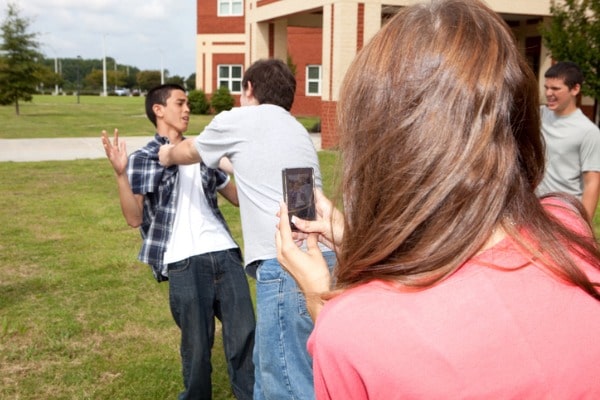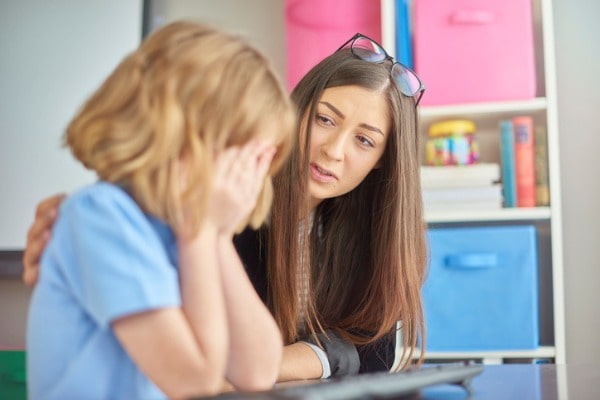Why Kids Bully
What can cause children to bully and how parents can help.
- 3 min read
- child development
- health & wellness

According to the National Bullying Prevention Center, one out of five children report that they were bullied during the school year. Additionally, one in five children ages 9 to 12 report that they’ve been cyberbullied, cyberbullied others, or witnessed cyberbullying. Bullying is such a serious health concern that the federal government has a website managed by the U.S. Department of Health and Human Services (HHS) dedicated to stopping it: StopBullying.gov.
What is bullying?
HHS defines bullying as unwanted, aggressive behavior among school-aged children that involves a real or perceived power imbalance. The action is repeated, or has the potential to be repeated, over time. There are several different types of bullying:
- Physical bullying: includes hitting, kicking, tripping, pushing, pinching, damaging property, and other similar actions.
- Verbal bullying: includes name calling, insults, teasing, intimidation, prejudice remarks, and other similar forms of verbal abuse.
- Social bullying: includes lying and spreading rumors, negative facial or physical gestures, playing nasty jokes meant to embarrass and humiliate, mimicking, excluding, and other similar means of damaging someone’s social reputation or acceptance.
- Cyberbullying: includes abusive or hurtful texts, emails, posts, images, or videos, purposefully excluding others online, spreading nasty gossip or rumors online, intimidating others online, and other similar means of virtual harassment

Effects of bullying
While the research on bullying is still relatively new and far from complete, some of the initial findings show that kids who are bullied could face some concerning effects:
- Depression
- Anxiety
- Feelings of sadness and loneliness
- Changes in sleep and eating problems
- Decreased academic achievement
- An increased likelihood to miss or drop out of school
Kids who bully others are more likely to:
- Have substance abuse issues
- Get into fights
- Engage in sexual activity earlier
- Have criminal convictions
- Be abusive toward their future partners or children

Why do kids bully?
There are several different reasons behind why a child might bully. Some of the most common theories include lack of attention from a parent in the home, learned behaviors from witnessing bullying by adults or older siblings in their lives, or simply having a more aggressive, impulsive, or dominating nature.
Another hypothesis published in Time Magazine proposes that kids bully to climb the social ladder at school. “What [researchers] found was that only one-third of the students engaged in any bullying at all–physical force, taunts, or gossip-spreading–but those who were moving up the school popularity chain bullied more as they went higher. It was only when kids reached the very top 2% of the school’s social hierarchy or fell into the bottom 2% that their behavior changed; these kids were the least aggressive.”
Another proposition on why kids bully is that it’s an easier way to solve problems. Rather than learning to manage their emotions and work out differences with a classmate, they bully. In many cases, the bully has not developed proper social skills, and that can follow them into adulthood.
Researchers at Yale Medicine are also trying to understand bullying better. Some of their research supports the theory that a lack of social awareness is a trait that bullies often possess, and in many instances, they share it with their victims.

How parents should handle bullying
According to researchers at Yale, you and your co-parent should not ignore bullying. To stop the behavior, parents must work with both the kids who are bullies and the kids who are being bullied. Stopbullying.gov provides this list of warning signs to look for:
Signs a child is being bullied:
- Unexplained injuries
- Lost or destroyed personal items
- Frequent headaches or stomach aches
- Changes in eating habits
- Difficulty sleeping or frequent nightmares
- Declining grades
- Decreased self-esteem
- Self-destructive behaviors such as physically harming themselves or talking about suicide
Signs a child is bullying others:
- Gets into physical or verbal fights
- Has friends who bully
- Is increasingly aggressive
- Is sent to the principal’s office or detention frequently
- Has unexplained extra money or new belongings
- Blames others for problems
- Is competitive and worried about reputation or popularity
To help prevent bullying, parents must acknowledge its existence and work with their child. It’s critical to keep the lines of communication open with your children and model behavior of treating others with kindness and respect.
This goes for co-parents as well. If you suspect your child is being bullied or bullying others, you should communicate with each other about these behaviors. If you and your co-parent are not in a place where you can communicate about important matters like this regularly, you should consider signing up for a shared parenting communication service, like TalkingParents. We offer several features to help co-parents communicate in an organized, documented fashion while keeping all your child’s important information in one, secure place.